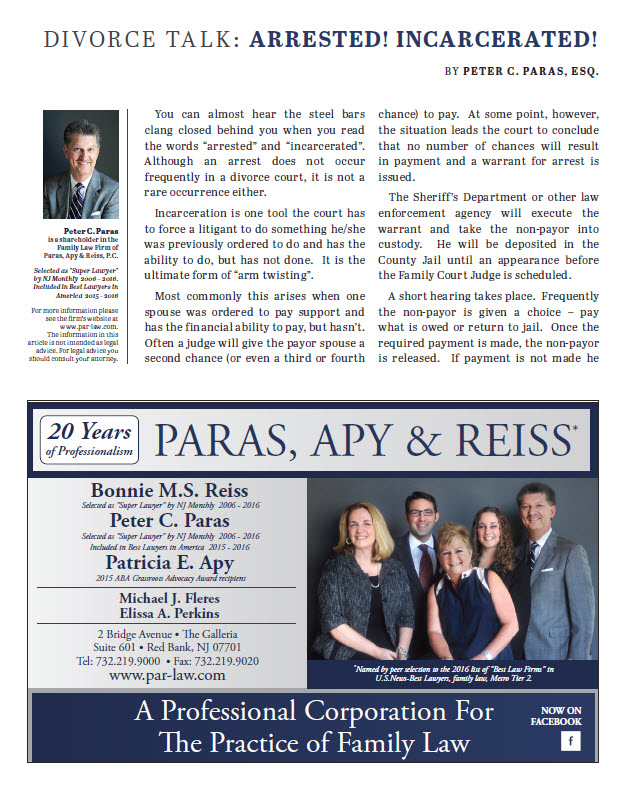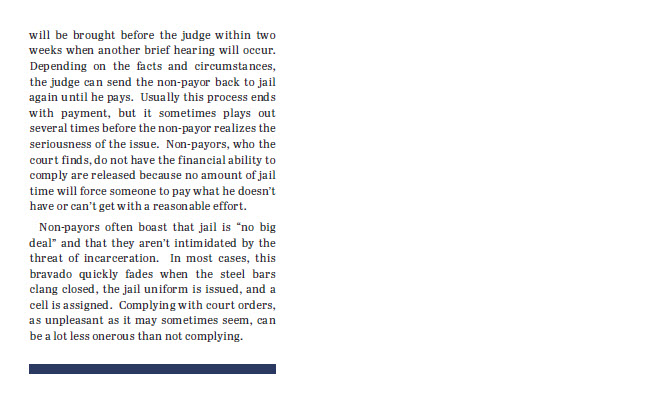You can almost hear the steel bars clang closed behind you when you read the words “arrested” and “incarcerated”. Although an arrest does not occur frequently in a divorce court, it is not a rare occurrence either.
Incarceration is one tool the court has to force a litigant to do something he/she was previously ordered to do and has the ability to do, but has not done. It is the ultimate form of “arm twisting”.
Most commonly this arises when one spouse was ordered to pay support and has the financial ability to pay, but hasn’t. Often a judge will give the payor spouse a second chance (or even a third or fourth chance) to pay. At some point, however, the situation leads the court to conclude that no number of chances will result in payment and a warrant for arrest is issued.
The Sheriff’s Department or other law enforcement agency will execute the warrant and take the non-payor into custody. He will be deposited in the County Jail until an appearance before the Family Court Judge is scheduled.
A short hearing takes place. Frequently the non-payor is given a choice – pay what is owed or return to kail. Once the required payment is made, the non-payor is released. If payment is not made he will be brought before the judge within two weeks when another brief hearing will occur. Depending on the facts and circumstances, the judge can send the non-payor back to jail again until he pays. Usually this process ends with payment, but it sometimes plays out several times before the non-payor realizes the seriousness of the issue. Non-payors, who the court finds, do not have the financial ability to comply are released because no amount of jail time will force someone to pay what he doesn’t have or can’t get with a reasonable effort.
Non-payors often boast that jail is “no big deal” and that they aren’t intimidated by the threat of incarceration. In most cases, this bravado quickly fades when the steel bars clang closed, the jail uniform is issued, and a cell is assigned. Complying with court orders, as unpleasant as it may sometimes seem, can
be a lot less onerous than not complying.


